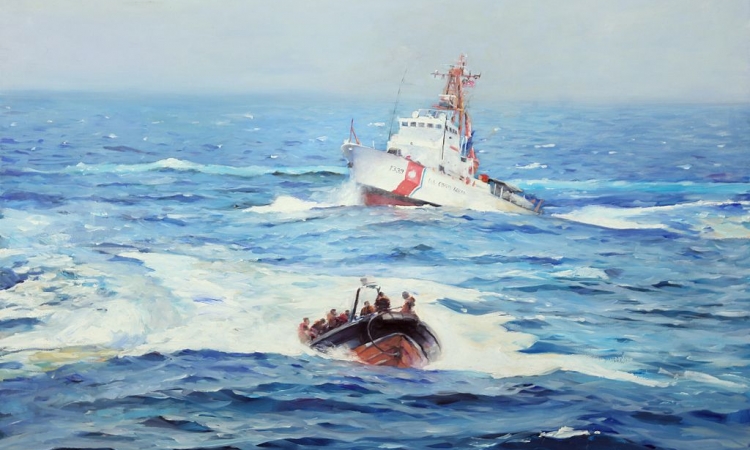The internationally agreed definition of migrant smuggling stems from the Protocol against the Smuggling of Migrants by Land, Sea and Air, which supplements the United Nations Convention against Transnational Organized Crime (Smuggling of Migrants Protocol). The Protocol defines the crime of migrant smuggling as ‘the procurement, in order to obtain, directly or indirectly, a financial or other material benefit, of the illegal entry of a person into a State Party of which the person is not a national or a permanent resident.’ No Member State can adhere to the Smuggling of Migrants Protocol without prior adherence to the Convention against Transnational Organized Crime.
Parties that ratify the Smuggling of Migrants Protocol are requested to criminalise the conduct of smuggling of migrants as defined above and to criminalise the procurement of irregular stay,d as well as producing, obtaining or providing fraudulent travel or identity documents for the purpose of enabling migrant smuggling. Thus, the Smuggling of Migrants Protocol covers offences related to the facilitation of both illegal entry and illegal stay of foreigners or persons who are not permanent residents when this is done to obtain a financial or other material benefit.
The criminalisation of smuggling of migrants promoted by the Smuggling of Migrants Protocol does not aim at criminalising migrants. The stated intention of the Protocol is to criminalise and prosecute those who smuggle others for gain, and not the migrants themselves. In addition, Article 5 explicitly states that ‘Migrants shall not become liable to criminal prosecution’ for having been smuggled.
The smuggling of migrants, as defined in Article 3(a) of the Smuggling of Migrants Protocol, involves the facilitation of a person’s illegal entry into a State, for a financial or other material benefit. Although it is a crime against a State, smugglers can also violate the human rights of those they smuggle, ranging from physical abuse to withholding food and water.
Article 3, paragraph (a), of the Protocol against the Smuggling of Migrants by Land, Sea and Air,1 supplementing the United Nations Convention against Transnational Organized Crime referred to as the Smuggling of Migrants Protocol) defines the smuggling of migrants as “the procurement, in order to obtain, directly or indirectly, a financial or other material benefit, of the illegal entry of a person into a State Party of which the person is not a national or a permanent resident”.
Article 6 of the Smuggling of Migrants Protocol requires the criminalization of this conduct. In addition, article 6, paragraph 1, requires States to criminalize conduct “[e]nabling a person who is not a national or a permanent resident to remain in [a] State ... without complying with the necessary requirements for legally remaining in the State by ... illegal means” “in order to obtain ... a financial or other material benefit”.
The combination of the following elements constitutes smuggling of migrants and related conduct:
1. Either the procurement of the illegal entry or illegal residence of a person
2. Into or in a country of which that person is not a national or permanent resident
3. For the purpose of financial or other material benefit.
Furthermore, article 6 of the Smuggling of Migrants Protocol requires States to criminalise producing, procuring, providing or possessing fraudulent travel or identity documents when committed for the purpose of enabling smuggling of migrants.
IMAGE CREDIT: Wikimedia Commons [Public domain]

